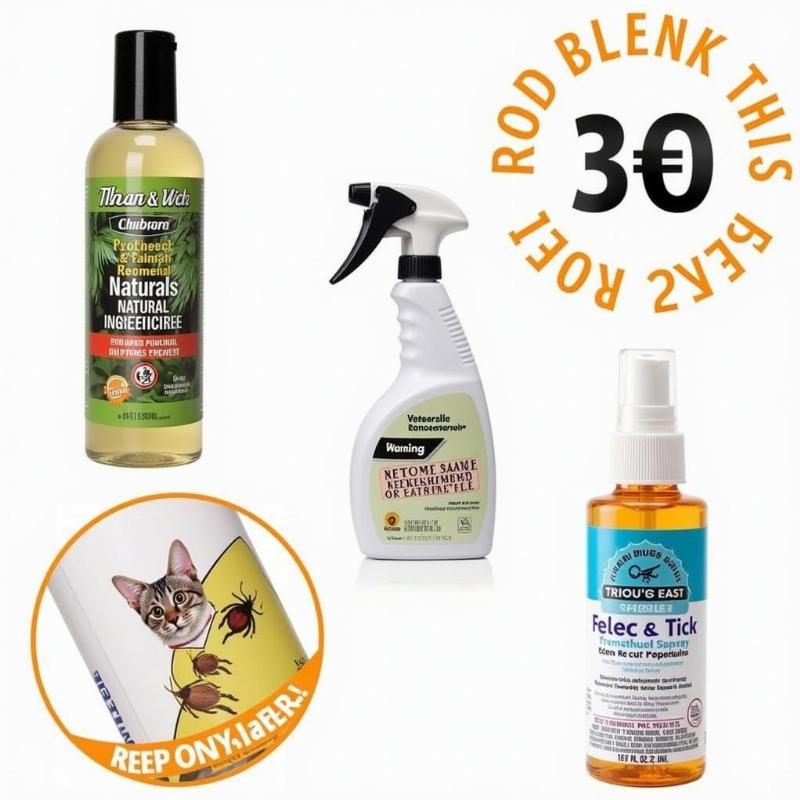Finding a good flea spray for dogs can feel overwhelming with so many options available in the US. You want something effective, safe for your pet, and easy to use. This guide will walk you through everything you need to know to choose the right flea spray for your dog, ensuring they stay happy, healthy, and pest-free.
Understanding Flea Sprays and Your Dog’s Needs
Before diving into specific products, let’s understand what we’re looking for. A good flea spray should kill adult fleas quickly, prevent future infestations, and be safe for your dog’s skin and overall health. Consider your dog’s age, breed, size, and any existing health conditions when choosing a spray. Some sprays are specifically formulated for puppies or senior dogs. Always consult with your veterinarian if your dog has any allergies or sensitivities.
Types of Flea Sprays for Dogs in the US
The US market offers a range of flea sprays with varying active ingredients. Some common types include:
- Pyrethrin-based sprays: These are derived from chrysanthemum flowers and offer quick knockdown of fleas. They are generally safe when used as directed.
- Permethrin-based sprays: These are synthetic pyrethroids and are more potent than pyrethrin. Caution: Permethrin is highly toxic to cats, so keep cats away from treated dogs.
- Fipronil sprays: This ingredient disrupts the flea’s central nervous system. It’s often used in combination with other insecticides for broader protection.
- Imidacloprid sprays: This is a neonicotinoid that works by affecting the nervous system of fleas. It’s generally considered safe for dogs when used as directed.
- Natural flea sprays: These utilize essential oils and other natural ingredients to repel fleas. Their effectiveness can vary, and some oils can be irritating to dogs, so careful selection is crucial.
 Types of Flea Sprays Available for Dogs
Types of Flea Sprays Available for Dogs
How to Apply Flea Spray Correctly
Proper application is essential for effectiveness and safety. Always follow the manufacturer’s instructions carefully. Here’s a general guide:
- Prepare your dog: Brush your dog’s coat to remove any loose hair or debris.
- Protect yourself: Wear gloves and consider eye protection.
- Apply the spray: Hold the spray bottle a few inches away from your dog’s coat and apply evenly, ensuring coverage from head to tail. Avoid spraying directly into the eyes, nose, and mouth. Part the fur to reach the skin.
- Don’t over-apply: More isn’t always better. Follow the recommended dosage on the product label.
- Monitor your dog: After application, observe your dog for any adverse reactions like excessive scratching, redness, or lethargy.
Choosing a Good Flea Spray Based on Your Dog’s Needs
i saw a flea on my dog
So, what’s the best flea spray for your dog? It depends on their individual needs. For puppies or sensitive-skinned dogs, a natural spray or one formulated specifically for sensitive skin might be best. hot spot spray for dog For heavy infestations, a veterinarian might recommend a stronger, prescription-strength spray. can dogs get fleas from grass Remember to avoid permethrin sprays if you have cats in your home. dogs keep off the grass signs bug repellent collar for dogs Consulting with your veterinarian is always recommended for personalized advice.
Conclusion
Finding a good flea spray for dogs involves understanding the different types available, considering your dog’s individual needs, and applying the product correctly. By following these guidelines and consulting with your veterinarian, you can effectively protect your furry friend from fleas and ensure their long-term health and happiness.
FAQ
- How often should I use flea spray on my dog? Always follow the manufacturer’s instructions. Most sprays recommend monthly applications, but some may require more frequent use.
- Can I use dog flea spray on my cat? Absolutely not. Many dog flea sprays contain permethrin, which is toxic to cats.
- What if my dog licks the flea spray? Contact your veterinarian immediately. While most sprays are designed to be safe when used correctly, ingestion can cause adverse reactions.
- Are natural flea sprays as effective as chemical ones? Effectiveness varies. Some natural sprays can be effective repellents, but they may not kill adult fleas as quickly as chemical sprays.
- What should I do if the flea spray doesn’t seem to be working? Consult your veterinarian. They can recommend a different product or treatment plan.
- Can I use flea spray in conjunction with other flea prevention methods? Yes, but consult your vet to ensure the products are compatible and won’t cause adverse reactions.
- Where can I purchase good flea spray for dogs in the US? Flea sprays are available at pet stores, veterinary clinics, and online retailers.
Beautdogs.us is your premier resource for comprehensive dog care information, breed-specific advice, and product recommendations in the United States. Whether you’re a new dog owner or a seasoned expert, Beautdogs.us is your trusted source for everything dog-related. We offer expert guidance on various aspects of dog care, from nutrition and grooming to training and health. Contact us today to learn more! Email: [email protected], Phone: +1 501-555-7529. Visit us at Beautdogs.us!